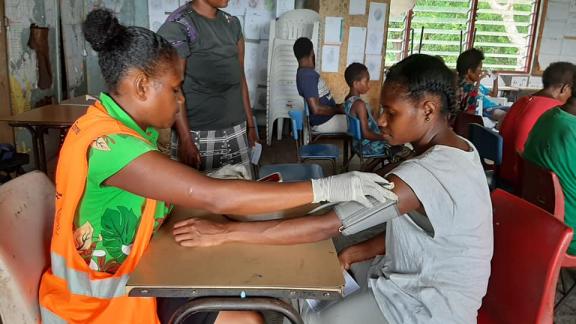The Asia Pacific Institute for Broadcasting Development (AIBD) and the International Planned Parenthood Federation, East, Southeast Asia, and Oceania Region (IPPF ESEAOR) jointly organised a comprehensive media training programme focused on content creation for impactful reporting on Reproductive Justice and Human Rights.
The three-day virtual training, which took place from July 23 to 25, brought together 45 media professionals from 17 countries across the region, including Malaysia, Indonesia, Myanmar, Vietnam, Fiji, Vanuatu, Papua New Guinea, India and Pakistan.
The training programme tackled several objectives to empower media professionals across the Asia-Pacific region. Emphasis was placed on promoting ethical media coverage, creating valuable resources, and fostering a network of journalists dedicated to developing a comprehensive guide and producing diverse content on multiple platforms, including news articles, in-depth human-interest pieces, videos, and documentaries on television or radio segments.

“The rise of disinformation and anti-rights movements threatens media integrity, democracy, and reproductive justice, impacting marginalised communities. This initiative, a collaboration between AIBD and IPPF ESEAOR, aims to equip participants with the skills to address these challenges and enhance media coverage and public awareness of these critical issues, leading to more informed and nuanced reporting,” said Tomoko Fukuda, IPPF ESEAOR Regional Director.
Recent pre-training survey results highlighted several critical areas for development among media practitioners in the Asia-Pacific region. 76% of respondents emphasised the importance of staying updated on regional reproductive health and rights developments. Additionally, 83% sought better tools and strategies to combat disinformation, while 69% expressed strong interest in solutions journalism to highlight successful initiatives and positive stories. 70% of participants identified the need to understand better and report on legal frameworks and their socio-economic impacts on marginalised communities. 72% showed a keen interest in learning new narrative-building and framing techniques to better engage their audiences on reproductive health and human rights issues.
Over three days, the programme covered ten sessions designed to tackle key challenges and enhance media professionals' skills through case studies, group discussions, and insights into identifying and countering disinformation. Participants explored current narratives surrounding reproductive health and human rights while gaining crucial insights into the influence of opposition groups and anti-rights movements on policies and advocacy.
"Framing content from a human rights angle or as a public health concern can significantly boost public understanding and engagement, particularly on social media. This approach highlights the media's crucial role in driving meaningful conversations," said Allan Colinares Francisco, PTV News Philippines.
"I have limited experience in covering sexual and reproductive health and rights, so the information-packed sessions were incredibly valuable. I’m now motivated to tackle key issues affecting young people, like menstrual health, hygiene, and comprehensive sexuality education (CSE), to ensure they get the accurate information they need,” said Happy Indah Goeritman, news anchor and assistant producer at TVRI Indonesia.
Jamel Suleman, communications associate at the Department of Information, Fiji, shared a similar sentiment: "I'm keen to develop articles on contraceptive use, analysing the cultural context, accessibility, and socio-economic impacts, particularly the effects of COVID-19. By interviewing local health experts, women's rights organisations, and community members, I aim to provide a comprehensive understanding of these aspects.”

Participants presented their content ideas for potential production during a dynamic pitching exercise that wrapped up the training. In this final activity, they showcased innovative strategies and concepts to enhance media coverage of reproductive justice and human rights by applying the insights gained throughout the training.
Dr Dipendra Kumar Mazumder, National Academy of Broadcasting and Multimedia (NABM), India, shared his ideas during the final session: "With my extensive experience as an editor and news producer, I believe that connecting SRHR topics to broader societal impacts is particularly valuable. Connecting global issues with local context is crucial, especially as broadcasters drive change towards Sustainable Development Goals (SDGs)."
In his closing remarks, Gessen Rocas, External Relations Director, IPPF ESEAOR, emphasised, “Moving forward, we hope the vibrant network of media practitioners formed during this training will be leveraged for ongoing collaboration and support, which will be instrumental in promoting human rights.”
The next phase of this collaboration will feature an in-person training in Kuala Lumpur, held in conjunction with the Asia Media Summit (AMS), an annual international media conference drawing around 500 global broadcasters, decision-makers, media professionals, scholars, and stakeholders. In addition to plenary sessions and pre-summit workshops, the AMS provides a platform for intergovernmental dialogues to elevate the standards of the regional media industry. Addressing reproductive justice and human rights will be critical, ensuring these vital issues are effectively covered and reported.
For more information, contact:
Malarvili Meganathan,
Regional Communications, Voice & Media Advisor,
East, Southeast Asia and Oceania Region
[email protected]
when









